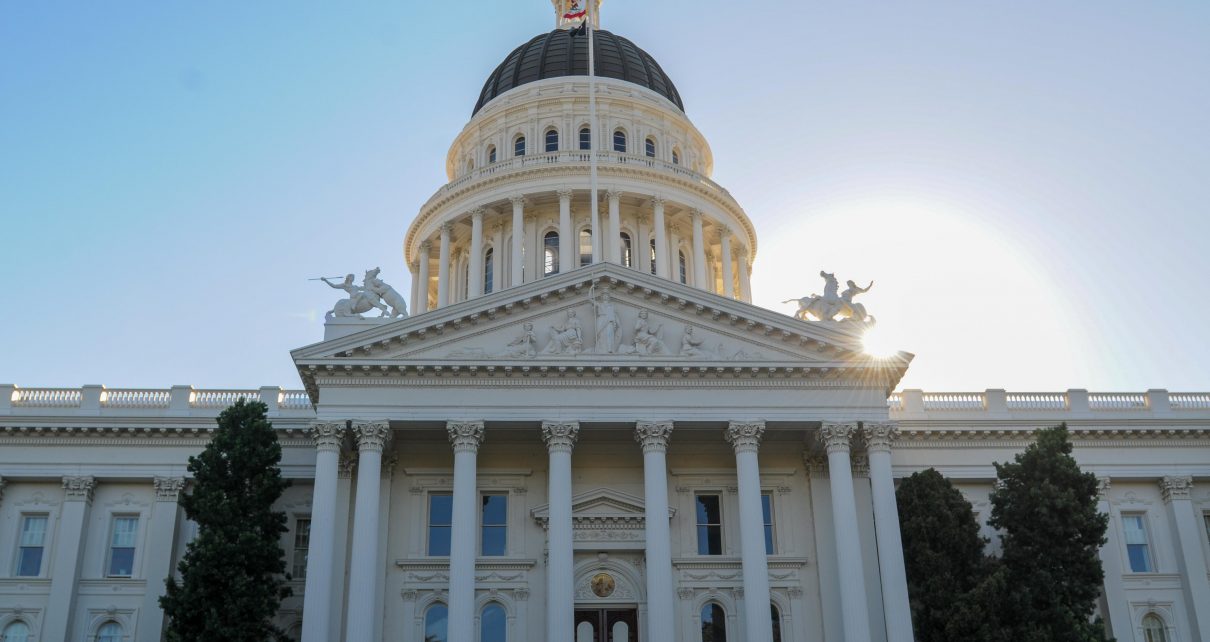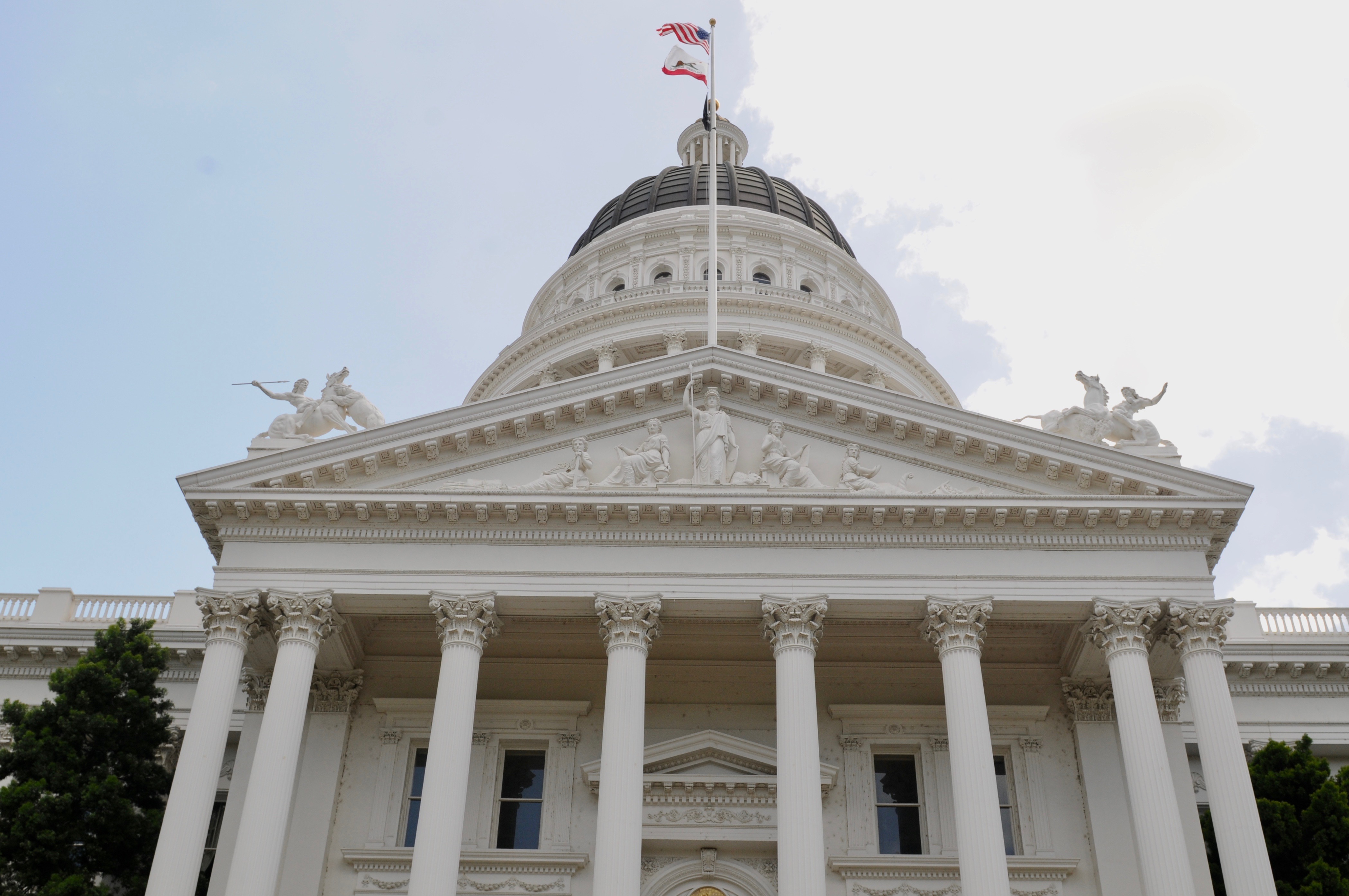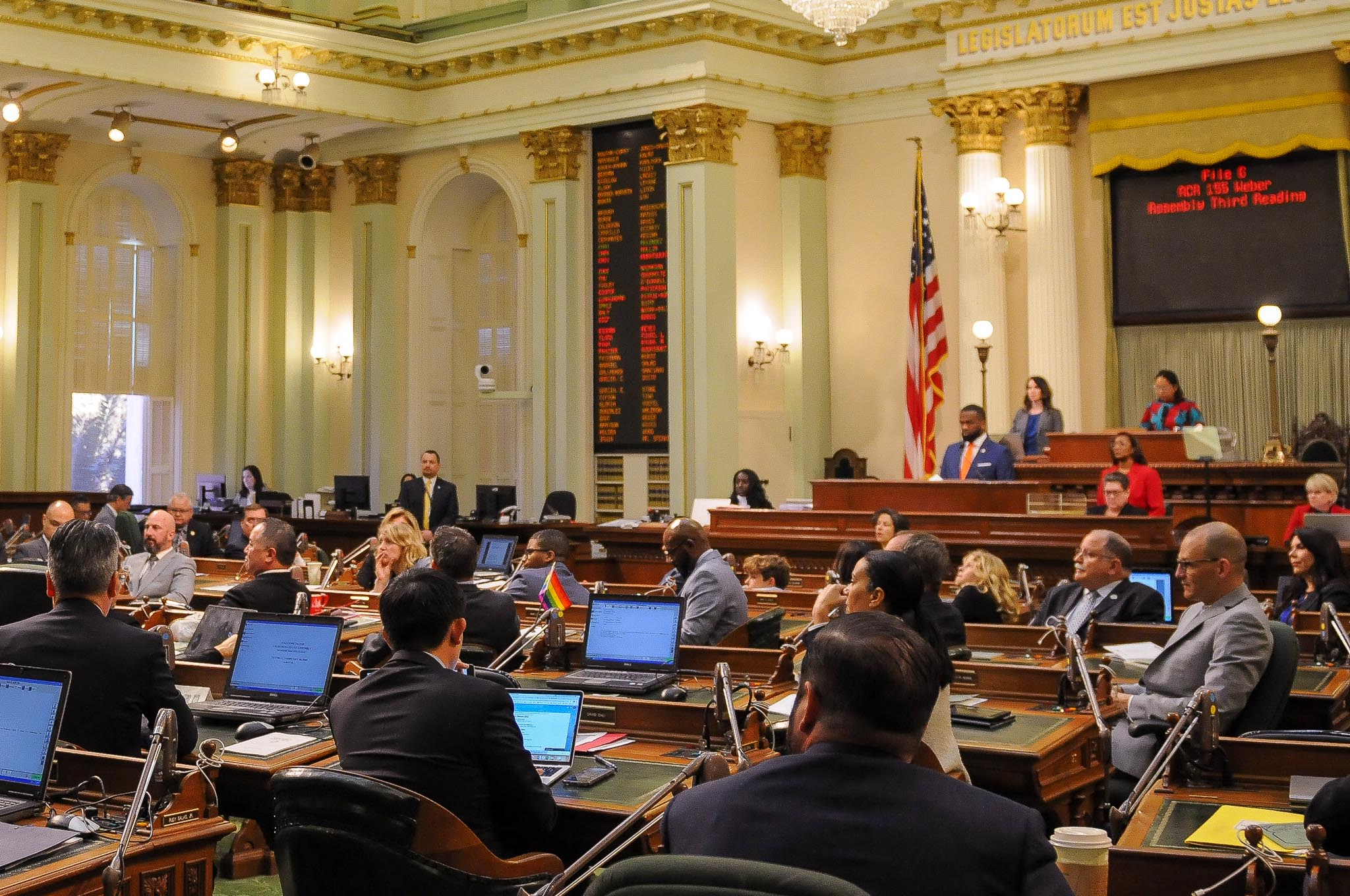
California State Capitol. (Photo: Kevin Sanders for California Globe)
Provisions of California Budget Taxation Trailer Bill
Gov. Gavin Newsom and Dem CA Legislative leaders reach $297.9 Billion budget agreement
By Chris Micheli, June 22, 2024 5:56 pm
Assembly Bill 175 and Senate Bill 175 were amended on Saturday, June 22 to become the taxation budget trailer bill. The following is a summary of the bills’ provisions:
Section 1 of the bill amends Public Resources Code Section 42885 to specify that CDTFA collects the California tire fee, and to define the term “feepayer.” This section is repealed on January 1, 2034.
Section 2 of the bill amends Public Resources Code Section 42885 to specify that CDTFA collects the California tire fee, and to define the term “feepayer.” This section becomes operative on January 1, 2034.
Section 3 of the bill amends Public Resources Code Section 42889 to provide that all revenues and penalties from the California Tire Fee are deposited in a specified manner. This section is repealed on January 1, 2034.
Section 4 of the bill amends Public Resources Code Section 42889 to provide that all revenues and penalties from the California Tire Fee are deposited in a specified manner. This section is repealed becomes operative on January 1, 2034.
Section 5 of the bill amends Revenue and Taxation Code Section 6902.5 to provide for the 2024, 2025, and 2026 tax years that the refund or credit offset cannot exceed $5 million in each of those calendar years for each claimant. The limitation for the 2025 calendar year does not apply if the Director of Finance determines by May 14, 2025 that General Fund money over the multiyear forecast is sufficient without the revenue impact of the net operating loss suspension and credit limitation, and pursuant to legislation in the annual Budget Act to not apply the limitations set forth. In addition, the limitation for the 2026 calendar year does not apply if the Director of Finance by May 14, 2026 determines that General Fund money over the multiyear forecast is sufficient without the revenue impact of the net operating loss suspension and credit limitation, and pursuant to legislation in the annual Budget Act to not apply the limitations set forth.
Section 6 of the bill amends Revenue and Taxation Code Section 17039 to make technical changes regarding claiming credits against net tax after January 1, 2027.
Section 7 of the bill amends Revenue and Taxation Code Section 17039.4 to make technical changes related to irrevocable elections to apply credit amounts against qualified sales and use tax. In addition, any amount of refundable credits over the $5 million limitation must be allowed in the first taxable year for which the limitation is not operative. The limitation for the 2025 calendar year does not apply if the Director of Finance determines by May 14, 2025 that General Fund money over the multiyear forecast is sufficient without the revenue impact of the net operating loss suspension and credit limitation, and pursuant to legislation in the annual Budget Act to not apply the limitations set forth. In addition, the limitation for the 2026 calendar year does not apply if the Director of Finance by May 14, 2026 determines that General Fund money over the multiyear forecast is sufficient without the revenue impact of the net operating loss suspension and credit limitation, and pursuant to legislation in the annual Budget Act to not apply the limitations set forth.
Section 8 of the bill adds Revenue and Taxation Code Section 17039.5 relating to a taxpayer making an election receive an annual refundable credit amount of qualified credits for each taxable year between January 1, 2024 and December 31, 2026. There are definitions for the terms “annual refundable credit amount,” “credit amount,” “qualified credits,” and “refundable period.” A taxpayer can claim 20% annually of the value of the credits over the following five years. A taxpayer must make an election for each tax year between 2024 – 2026. This section is repealed on December 1, 2034.
Section 9 of the bill amends Revenue and Taxation Code Section 17276.24 regarding net operating losses. The NOL suspension for the 2025 calendar year does not apply if the Director of Finance determines by May 14, 2025 that General Fund money over the multiyear forecast is sufficient without the revenue impact of the net operating loss suspension and credit limitation, and pursuant to legislation in the annual Budget Act to not apply the limitations set forth. In addition, the limitation for the 2026 calendar year does not apply if the Director of Finance by May 14, 2026 determines that General Fund money over the multiyear forecast is sufficient without the revenue impact of the net operating loss suspension and credit limitation, and pursuant to legislation in the annual Budget Act to not apply the limitations set forth.
Section 10 of the bill amends Revenue and Taxation Code Section 23036 to make technical changes regarding claiming credits against net tax after January 1, 2027.
Section 11 of the bill amends Revenue and Taxation Code Section 23036.4 dealing with the $5 million tax credit cap to provide that, for taxpayers that make a certain election can claim a refundable credit in the first taxable year for which the credit limitation is not operative. In addition, any amount of refundable credits over the $5 million limitation must be allowed in the first taxable year for which the limitation is not operative. The limitation for the 2025 calendar year does not apply if the Director of Finance determines by May 14, 2025 that General Fund money over the multiyear forecast is sufficient without the revenue impact of the net operating loss suspension and credit limitation, and pursuant to legislation in the annual Budget Act to not apply the limitations set forth. In addition, the limitation for the 2026 calendar year does not apply if the Director of Finance by May 14, 2026 determines that General Fund money over the multiyear forecast is sufficient without the revenue impact of the net operating loss suspension and credit limitation, and pursuant to legislation in the annual Budget Act to not apply the limitations set forth.
Section 12 of the bill adds Revenue and Taxation Code Section 23036.5 relating to a taxpayer making an election receive an annual refundable credit amount of qualified credits for each taxable year between January 1, 2024 and December 31, 2026. There are definitions for the terms “annual refundable credit amount,” “credit amount,” “qualified credits,” and “refundable period.” A taxpayer can claim 20% annually of the value of the credits over the following five years. A taxpayer must make an election for each tax year between 2024 – 2026. This section is repealed on December 1, 2034.
Section 13 of the bill amends Revenue and Taxation Code Section 24416.24 dealing with the NOL suspension and provides that for the 2025 and 2026 tax years, the suspension does not apply if, by May 14, 2025 (and May 14, 2026) the Director of Finance determines that General Fund money over the multiyear forecast is sufficient without the revenue impact of the net operating loss suspension and credit limitation, and pursuant to legislation in the annual Budget Act to not apply this section of law.
Section 14 of the bill provides that no reimbursement is required for costs incurred by a local agency or a school district.
Section 15 of the bill specifies that this bill only becomes operative is SB 167 is enacted and becomes effective.
Section 16 of the bill provides that this bill is related to the Budget Bill and will take effect immediately upon enactment.
- Exchange Services for Supervised Child Visitation - February 6, 2026
- General Provisions on Enforcement of Judgments - February 5, 2026
- Fish and Game Management - February 5, 2026




